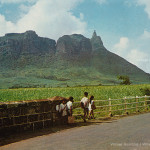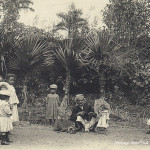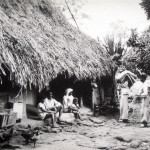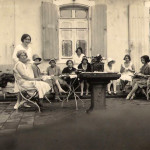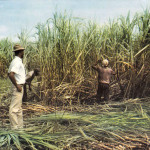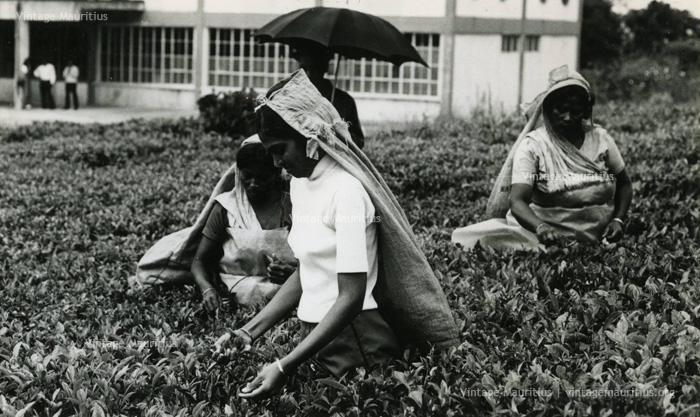
Tea Plucking – Nouvelle France – Chartreuse Tea Factory – 1960s
Mauritius has been cultivating tea since the french colonial times and even today tea is still being cultivated around various upper lands of the country. True to say that the number of Tea Factories have certainly declined but the plantations have remained. As most societies around the world, tea forms part of an important part of the Mauritian culture. It can be said that the island is self-sufficient in its tea demand.
One would certainly enjoy contemplating those women at early mornings or even in some afternoons in the tea fields plucking those leaves with such dexterity and ability. With the bags on their back, they would pluck the leaves and fill in the content which will then be dropped at the factory for drying and the tea preparation process. Bois Cheri, Corson and La Chartreuse are among the famous Mauritian brands that will create a sense of nostalgia to many. Their respective factories are still in operation since years. Image shared by: Keeran Chhaganlall
The tea industry in Mauritius was developped towards the end of the 1800′s, when Mauritius still was a British colony. Its glory days were between the 1960′s and the early 1980′s, thanks to government backing and a very favourable international environment, when the price of tea, as a sought-after commodity, experienced several successive increases.
However, the end of the 1980′s reveals an opposite trend and government is forced to subsidise this struggling sector of the economy. 1994 witnesses a decisive turn for the local industry, when government, which owned most of the factories, decides to disengage from tea production, as it was no longer competitive on the London market. The landscape of the island’s high ground changes as many tea plantations make way for sugar cane fields. Nowadays, there are 680 hectares of tea plantations in Mauritius. (Source: Corson Tea)
